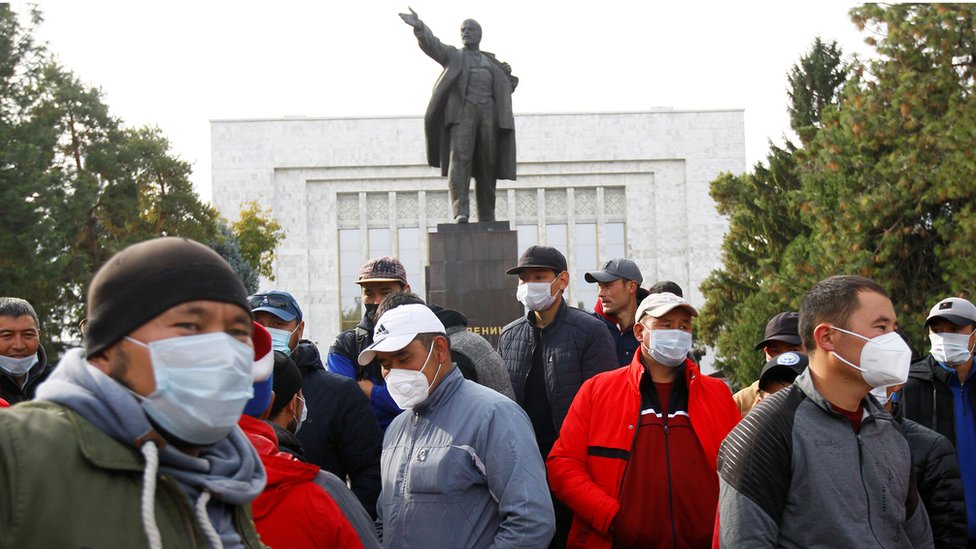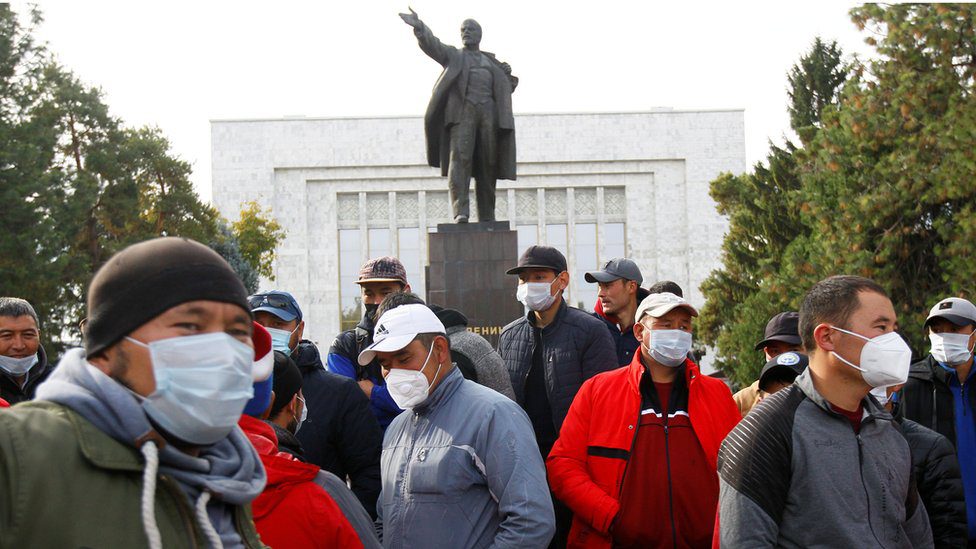Fierce clashes have taken place between rival protesters in Kyrgyzstan’s capital, Bishkek, after President Sooronbai Jeenbekov declared a state of emergency.

Rival political groups fought in the streets and some protesters reportedly fired gunshots into the air.
Unrest has gripped the Central Asian country since a disputed parliamentary election last Sunday. A curfew and security restrictions are being imposed.
On Tuesday, demonstrators stormed the country’s parliament and clashed with police, demanding that a new vote be held.
President Jeenbekov, who earlier said he was willing to resign if there were a legitimate way of transferring power, ordered the state of emergency to come into effect at 20:00 local time (14:00 GMT) on Friday and last until 21 October.
The decree also gives permission to the army to set up security posts in Bishkek, deploying soldiers and military hardware.
The landlocked country, which borders China, was part of the Soviet Union until independence in 1991. It has a reputation for holding semi-free and fair elections in comparison with some of its neighbours, but uprisings in 2005 and 2010 swept previous presidents from power.
President Jeenbekov said on Friday that he would step down when MPs appointed a legitimate cabinet and the rule of law was restored.
Protesters cannot agree on who should lead a new government and each group wants their own leader after the prime minister, Kubatbek Boronov, stepped down on Wednesday.
One group is backing former MP Sadyr Japarov, who was reportedly freed from prison by protesters earlier this week. A group of 35 MPs announced he was the new prime minister on Wednesday, but opponents say the selection process violated the constitution.
On Friday four parties nominated a different candidate – Omurbek Babanov – who fled the country in 2017 after unsuccessfully challenging Mr Jeenbekov in a presidential election.
Read Also: We’ll No Longer Tolerate Harassment Of Nigerians In Ghana
What do we know about the election?
The parliamentary vote was held last Sunday. Only four political parties out of 16 won enough votes to gain seats in parliament – three of the four had close ties to Mr Jeenbekov.
None of the established opposition parties secured a seat, and on Monday all 12 opposition groups jointly declared they would not recognise the results.
They accused parties close to the president of vote-buying and voter intimidation – claims international monitors said were “credible” and a cause for “serious concern”.
Some observers claimed to have seen, during the first hours of voting, some citizens with marked masks being handed filled-out ballots.
There were also allegations of voters being bribed and bussed in to places where they could swing the result.
